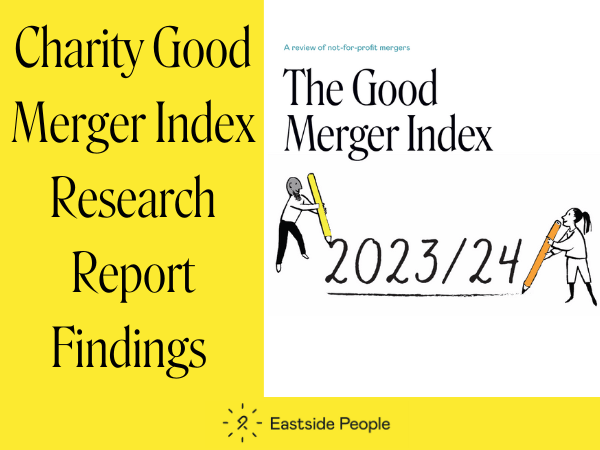About Us
Eastside People
Eastside PeopleCase Studies
Case StudiesWhat Our Clients Say
What Our Clients SayNews & Insights
News & InsightsEquity, Diversity & Inclusion (EDI)
Equity, Diversity & Inclusion (EDI)Our Partners
Our PartnersEastside Primetimers Foundation
Eastside Primetimers FoundationContact Us
Contact UsConsultancy
Consultancy Services
Consultancy ServicesMerger & Partnership Consultancy Services
Merger & Partnership Consultancy ServicesStrategy
StrategyEnvironmental, Social, Governance (ESG) Consultancy Services
Environmental, Social, Governance (ESG) Consultancy ServicesCulture & Workforce
Culture & WorkforceGovernance
GovernanceAI (Artificial Intelligence) Consultancy
AI (Artificial Intelligence) ConsultancyImpact Measurement & Evaluation Reports
Impact Measurement & Evaluation ReportsIncome Generation & Fundraising
Income Generation & FundraisingSocial Investment & Property Finance
Social Investment & Property FinanceDigital Consultancy Services
Digital Consultancy ServicesRecruitment
Interim Management
Interim ManagementBoard Recruitment
Board RecruitmentExecutive Search
Executive SearchVacancies
VacanciesOur People
Our Culture
Our CultureOur Central Team
Our Central TeamOur Consultants
Our ConsultantsJoin Us
Join UsKnowledge Base
Knowledge Base
Knowledge BaseNews & Insights
News & InsightsResources
ResourcesEvents
EventsFree ESG Assessment Tool
Free ESG Assessment Tool



























